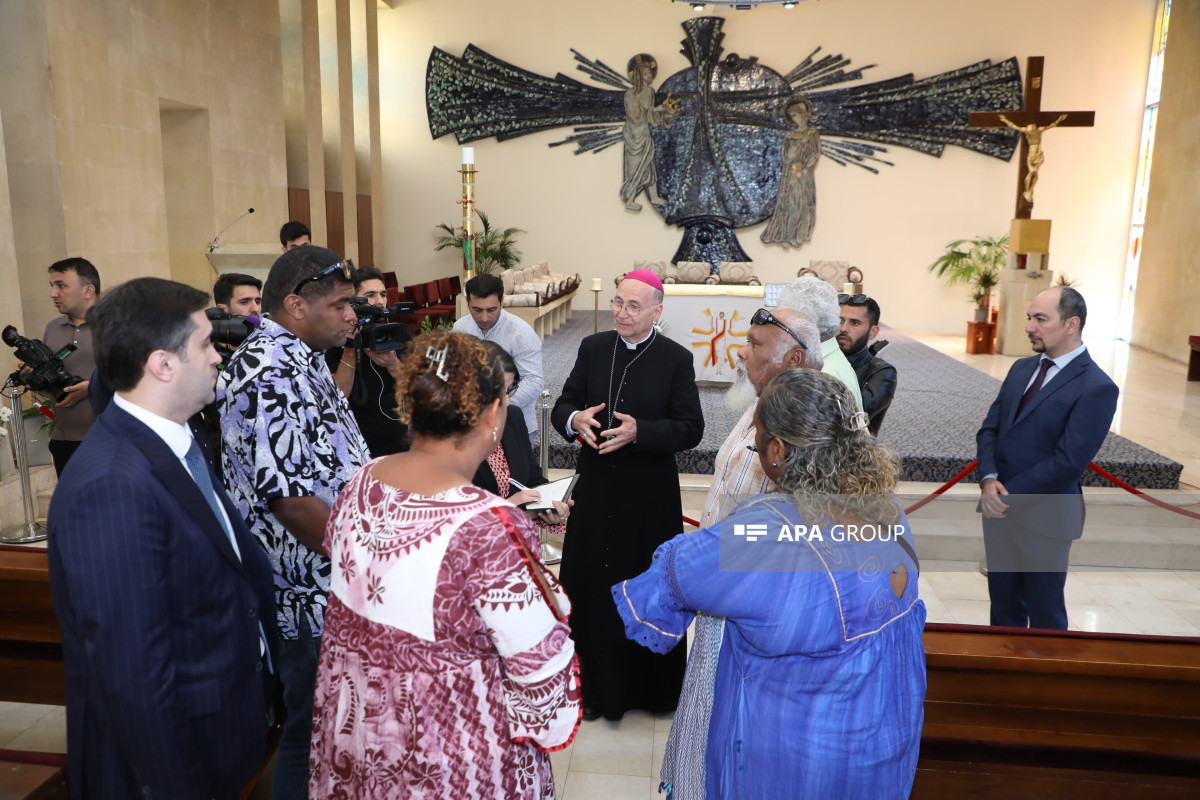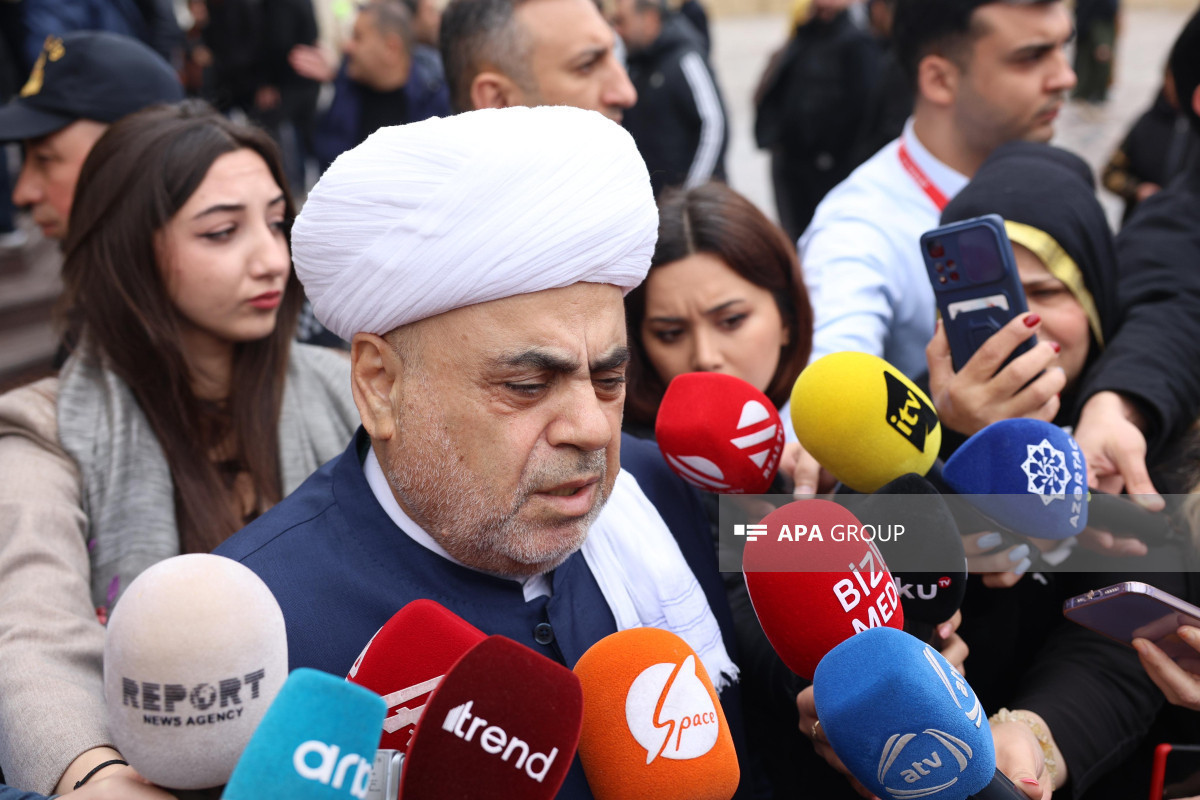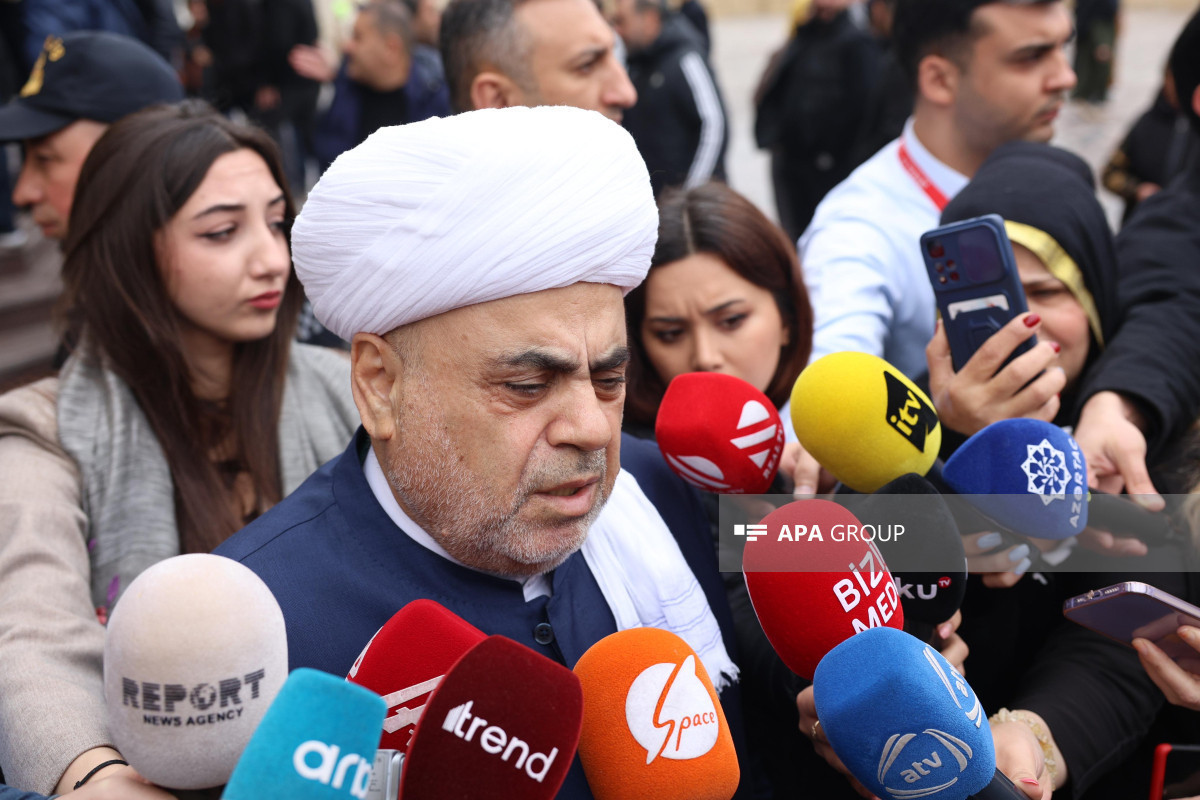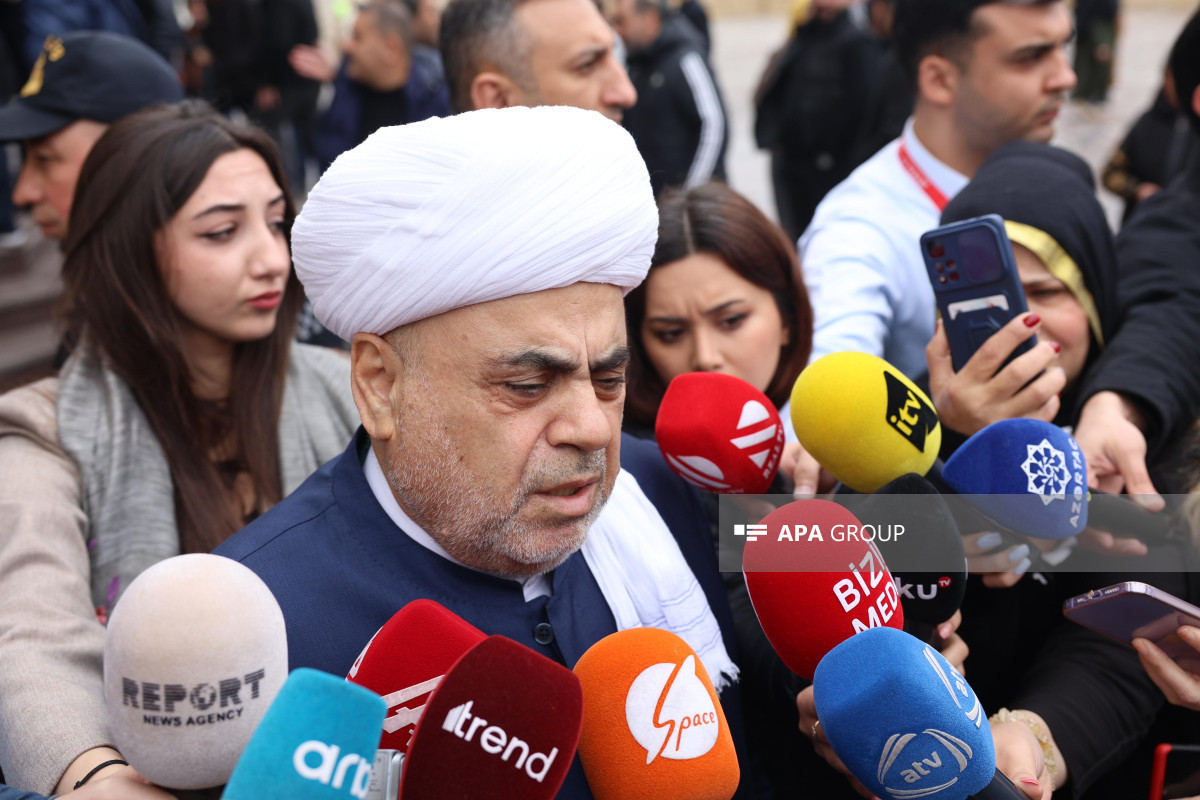The Ordinary of the Roman Catholic Church's Apostolic Prefecture in Azerbaijan Vladimir Fekete was interviewed by APA News Agency
- How do you assess current relations between Azerbaijan and the Vatican? Are you satisfied with the development of bilateral relations?
- The Vatican was among the countries that first recognized the Independent Azerbaijan Republic after the collapse of the Soviet Union and had diplomatic relations with. Mutual relations rose to a higher level after the historically first visit of the Pope of Rome John Paul II to Azerbaijan in May 2002.
I believe that the current relations between the Republic of Azerbaijan and the Vatican are at a very high level. This is evidenced by numerous reciprocal visits, including the official visit of the President of the Republic of Azerbaijan Ilham Aliyev to the Vatican in April 2016 and the visit of Pope Francis to Baku in October 2016.
- His Holiness Pope Francis said that he hopes for a peaceful settlement of the Nagorno-Karabakh conflict while visiting Azerbaijan and Armenia in 2016. Can the Vatican give any support to the OSCE Minsk Group and other international organizations in finding the solution to the Armenian-Azerbaijani Nagorno-Karabakh conflict through negotiations?
- During his visit to Baku, Pope Francis unequivocally expressed that he supports the peaceful resolution of the Nagorno-Karabakh conflict. What specific steps in this direction the Vatican has taken and is taking at international organizations, unfortunately, I do not know. This question, in my opinion, is more concerned with the Vatican diplomacy.
-Is it expected Pope Francis's visit to the South Caucasus region?
-Pope Francis receives an invitation to visit around the world. Since he visited the South Caucasus countries only 3 years ago, it is likely that he would prefer to visit other countries, especially those that the Pope did not attend at all, and there are many such countries. If it pleases God, we will rejoice in his re-arrival in Azerbaijan.
-Pope Francis has appointed titular Archbishop of Novi, Pol Fitzpatrick Russell as the Apostolic Nuncio in Azerbaijan. When does new ambassador begin his work
-Pope Francis appointed Archbishop Paul Fitzpatrick Roussel as ambassador to Azerbaijan in April 2018, and he assumed his position on November 4 last year, when he handed over his letters of trust to President Ilham Aliyev. Monsignor Roussel is at the same time the ambassador of the Vatican in Turkey and Turkmenistan, and his permanent office is in Ankara.
-What is being done to develop cooperation between the Vatican and Azerbaijan in cultural areas?
- As is well known, the Heydar Aliyev Foundation, in collaboration with the Vatican museums, carried out several projects related to the reconstruction of ancient monuments in Rome. Several exhibitions of Azerbaijani artists have also been held in Rome and negotiations are underway to organize an exhibition in Baku of some valuable exhibits of the Vatican museums related to the ancient history of Azerbaijan.
-How would you assess the attitude towards religious confessions and religious groups in Azerbaijan?
- I live and work as a religious leader of the Catholic Church in Azerbaijan for 10 years. During this time, I got acquainted rather deeply with the history and modern high level of relations between religious groups in Azerbaijan. I can say that I have very close and friendly relations with representatives of the Caucasian Muslims Office led by the respected Sheikhulsislam Allahshukur Pashazade, representatives of the Jewish communities, the head of the Russian Orthodox Church, the Archbishop of Azerbaijan and Baku, Alexander, and representatives of other Christian movements in Azerbaijan. I am sure that positive relations between religious leaders are always to the benefit not only of believers but also of the whole society.
-What is your view about interfaith dialogue in the contemporary world?
- Interfaith dialogue is always more important. The modern lifestyle leads to the fact that people move and live shortly or long-term in other countries, living side by side with representatives of other religions. Difficulties in some countries led politicians to make statements about the failures of inter-religious dialogue. I do not share the opinions of these politicians and I am confident that we all should strive in this direction: preserving our own identity, be ready and able to accept and positively assess the wealth of other nations and other religions. In this regard, Azerbaijan is a positive example for other countries.
-There is such an approach that, over the centuries, the attitude of people to religion changes, even though according to statistics a large number of people said that they have no religious affiliation. It would be interesting to know your view regarding this issue…
- I may say for sure that human is a spiritual being whose soul is immortal and in search of God and the meaning of his existence as living in the universe. Of course, during the course of history, a person found various answers to his search and sometimes lived in delusion and idolatry. In the fullness of time, through his prophets, God revealed to Himself Himself and the right path to life in truth. The last centuries appeared particularly strong revolutionary ideas that forcibly inculcated atheism and persecuted all believers and which in many parts of the world continue to influence. Theoretical atheism and practical materialism contributed to the spread of a godless way of life, or at least an indifferent attitude towards faith in God. I don’t know what statistics you are talking about, but according to my information, on the contrary, the number of believers is increasing not only in the countries of the former Soviet Union but also in other continents. The fact remains that some people, especially young people, cannot always attribute themselves to a particular religion, but despite this, consider themselves religious people and continue their search for God and existence on earth







